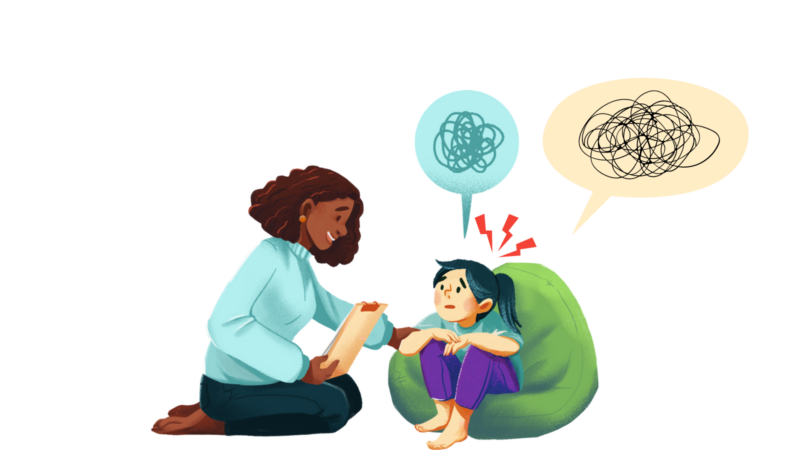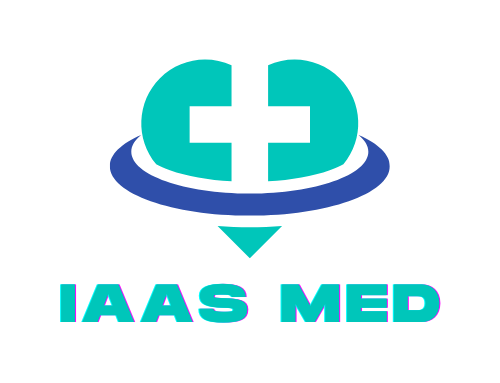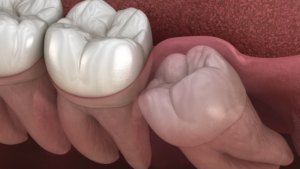Childhood trauma can stick with us, messing with our minds and bodies even when we’re grown. The tough times we go through as kids can shape how we feel, act, and connect with others later in life. It’s important to get how deep this runs if we want to heal and bounce back.
In this article, let’s chat about how childhood trauma affects us, what’s going on in our brains, and how we can start to recover.
Effects of childhood trauma

According to Stanford Medicine, childhood trauma can arise from various situations, such as:
- abuse,
- neglect,
- witnessing violence.
These experiences can disrupt a child’s sense of safety and normalcy, leading to profound psychological and physical consequences. The impact can be immediate, but it often continues to influence the individual long after the traumatic events have ended. Its effects can be profound and far-reaching, shaping the way individuals interact with the world around them.
Physical and mental struggles
Traumatic experiences in childhood often lead to struggles that persist throughout life. These can manifest as mental health issues, like anxiety and depression, or physical health problems, such as chronic illnesses and a weakened immune system.
The body’s response to chronic stress can also lead to issues like hypertension and diabetes. Additionally, individuals may develop maladaptive coping mechanisms, such as substance abuse, to manage their pain. These struggles can significantly impair one’s quality of life, making daily functioning a challenge.
PTSD vs. trauma
While trauma involves intense fear for personal or loved ones’ safety, PTSD (Post-Traumatic Stress Disorder) is a more severe condition that significantly disrupts daily life. PTSD requires professional treatment and includes symptoms such as flashbacks, where the person relives the traumatic event.
This can be accompanied by avoidance behaviors, where individuals steer clear of anything that reminds them of the trauma. Additionally, symptoms like hypervigilance and jumpiness can keep the individual in a constant state of alert, making it difficult to relax or feel safe.
Emotional shutdown and lack of interest in previously enjoyed activities can further isolate the individual from supportive social networks.
How does it affect our adulthood?
The impact of childhood trauma can vary depending on several factors, including:
- environmental influences,
- coping mechanisms,
- the availability of support.
The lasting effects can be subtle or profound, affecting every aspect of a person’s life. Relationships, career paths, and personal goals can all be influenced by early traumatic experiences. Understanding these impacts can help in developing strategies to mitigate the negative effects and promote healing.
Environmental factors
How an individual’s upbringing, coping strategies, and support systems interact with their traumatic experiences plays a significant role in determining the long-term effects. A supportive environment can buffer against some of the adverse outcomes, while a lack of support can exacerbate them. Additionally, the timing of the trauma can influence its impact, with earlier interventions often leading to better outcomes.
“It’s normal to react deeply to a stressful event,” says Kristen Holderle, UR Medicine’s Clinic Director of the HEAL Collaborative. “If you’re having a hard time, that doesn’t mean something is wrong with you. It’s important to normalize big feelings and big reactions.”
Family dynamics, community resources, and societal attitudes all play a part in shaping the individual’s ability to cope and recover. Recognizing these factors can help tailor interventions to meet the specific needs of trauma survivors.
ACE score
According to Nicole Karcher, the Adverse Childhood Experiences (ACE) score is a measure used to assess the amount of trauma a person has experienced during childhood. Higher ACE scores are associated with a greater risk of negative health outcomes, both mental and physical, in adulthood.
This score includes experiences such as physical, emotional, and sexual abuse, as well as neglect and household dysfunction. Understanding one’s ACE score can help in identifying potential health risks and the need for targeted interventions. It serves as a critical tool for both individuals and healthcare providers in managing the long-term impacts of trauma.
Early intervention
Early intervention is crucial for mitigating the effects of childhood trauma. Addressing trauma early can help individuals develop healthier coping mechanisms and reduce the risk of long-term negative outcomes. Interventions can include therapy, family support, and community resources aimed at providing a safe and nurturing environment.
Early intervention can also help in identifying and treating mental health issues before they become more severe. The sooner the trauma is addressed, the better the chances of fostering resilience and preventing further complications.
Physical health impact

Research has shown that childhood trauma can have a significant impact on physical health. This can be seen in various ways, from chronic health conditions to a heightened stress response. The body’s ongoing reaction to stress can lead to wear and tear on multiple systems, increasing vulnerability to illness.
Understanding the physical health impact of trauma is essential for developing comprehensive treatment plans that address both the mind and body.
Research findings
As Holderle claims, studies indicate that childhood trauma affects mental health, coping mechanisms, and physical health. The stress response, immunity, and cardiovascular health can all be influenced by traumatic experiences in childhood. Long-term exposure to stress hormones like cortisol can damage bodily systems, leading to increased risks of heart disease and other chronic conditions.
Mental health struggles such as anxiety and depression can also manifest physically, with symptoms like chronic pain and fatigue. Recognizing these connections is crucial for providing holistic care to trauma survivors.
Biological influence
Trauma can alter biological processes, affecting the stress response system, immune function, and heart health. These changes can increase the risk of chronic illnesses and other health issues in adulthood. For example, the chronic activation of the stress response can lead to inflammation, which is linked to a variety of health problems.
Additionally, trauma can affect the brain’s development and function, potentially leading to cognitive and emotional difficulties. Understanding these biological influences can help in developing targeted treatments that address the root causes of health issues related to trauma.
Studies and research
Ongoing research continues to shed light on the effects of childhood trauma and how it impacts brain development and overall health. This research is essential for developing effective interventions and improving outcomes for those affected by trauma.
ABCD Study
The Adolescent Brain Cognitive Development Study (ABCD) follows 11,750 children to understand how trauma impacts brain maturation. This long-term study aims to provide insights into the lasting effects of childhood trauma.
The findings from this study can help identify critical periods for intervention and the most effective strategies for supporting children who have experienced trauma. Additionally, the study explores how various factors, such as genetics and environment, interact with trauma to influence development.
ECHO and Del Monte Institute for Neuroscience
The Environmental Influences on Child Health Outcomes (ECHO) study and research from the Del Monte Institute for Neuroscience focus on understanding early childhood trauma’s effects. These studies examine how trauma alters brain structure and function, providing valuable information for developing effective interventions.
Epigenetics
Epigenetics is the study of how trauma-induced biological changes can affect health, even across generations. Research in this field examines how trauma can influence gene expression, potentially impacting health outcomes during pregnancy and beyond.
These changes can affect not only the individual who experienced the trauma but also their descendants. Understanding the epigenetic effects of trauma can help in developing strategies to prevent and mitigate its impact across generations.
This field of study underscores the importance of addressing trauma not just as an individual issue, but as a public health concern with far-reaching implications.
Healing from trauma

Healing from childhood trauma is a challenging but achievable process. Various support systems and therapeutic approaches can help individuals on their journey to recovery. Support from loved ones and professional therapy are crucial components of the healing process.
Listening and encouraging discussions about traumatic experiences can help individuals process their emotions and begin to heal. Therapeutic approaches can provide structured ways to address trauma, helping individuals understand and manage their responses.
Additionally, support from family and friends can offer a sense of safety and connection, which is vital for recovery.
Types of therapy
Several types of therapy have proven effective in helping individuals heal from trauma:
- Trauma-focused Cognitive Behavioral Therapy (TF-CBT): This therapy helps individuals process and manage traumatic memories and develop healthier coping mechanisms. It focuses on changing negative thought patterns and behaviors associated with trauma.
- Cognitive Processing Therapy (CPT): This approach focuses on changing the negative thought patterns associated with trauma. It helps individuals challenge and modify harmful beliefs related to their experiences.
- Written Expressive Therapy: Encouraging individuals to write about their traumatic experiences can help them process and understand their emotions. This form of therapy allows individuals to express their feelings and gain insights into their experiences.
These therapeutic approaches provide different ways for individuals to address and heal from their trauma, offering flexibility to find the most effective method for each person.
Changing the relationship with trauma
Therapy aims to help individuals change their relationship with their traumatic experiences. By reframing these experiences and developing healthier coping strategies, individuals can move forward and lead fulfilling lives. This process involves understanding and integrating the trauma into their life narrative in a way that reduces its power and impact.
In summary
Childhood trauma can have a lasting impact on our lives, affecting both mental and physical health. With the right support and therapeutic approaches, healing is possible, allowing individuals to build resilience and lead healthy, fulfilling lives.















